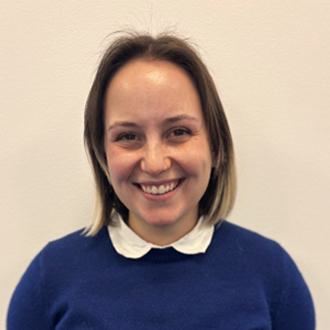Q&A with Isabella Romano
Q&A with Isabella Romano
Isabella Romano is an analyst for Mid West Regional Team at Moody's Ratings.

Tell us a bit about yourself and what you currently do for work.
I am an analyst on Moody’s Ratings’ Midwest Local Government team. I am the state lead for the portfolio of local governments in North Dakota and also cover credits in Ohio, Minnesota, and Wisconsin. The job entails rating new bond sales and monitoring existing ratings for a portfolio of about 175 local government issuers, including cities, counties, school districts, community colleges, water and sewer utilities, electric and gas enterprises, and other special districts.
Did you always think you wanted to be an analyst?
During graduate school, I thought I would work for a local government in the Chicago region, but a mentor recommended that I apply to the rating agencies as well. When I ultimately landed a job on Moody’s local government team, I found that I liked the variety of working on all kinds of credits across the Midwest. I get to talk to lots of different issuers from various states and sectors, which keeps things interesting.
Walk us through your career journey since your time as a GFOA intern. What have been some of the key steps along the way?
After my time as a GFOA RCC intern, I worked as a research assistant at UIC’s Government Finance Research Center (GFRC). Once I finished up my master’s in public policy, I spent a few months applying to local governments, non-profits, and rating agencies. I ended up an Associate Analyst at Moody’s. After a year, I was promoted to Analyst.
How did the GFOA internship contribute to your professional development? What skills or experiences did you gain that have stayed with you?
The GFOA internship allowed me to get some real-world experience working with big data sets, as I worked on a Tableau dashboard that showed city-level data on revenue sources. I also worked on a series of case studies about cross training at small local governments, which got me comfortable talking to local government officers and illustrated the powerful work that even our smallest local governments do every day. As a result, I honed both my analytical skills and my soft skills, which allowed me to land a great job and get promoted quickly.
Has your perspective on local government changed since you were an intern? If so, how?
I always felt like local government was deeply important, and if anything, my respect for the work they do has only deepened. But through the sheer volume of local governments I speak with on a weekly basis, I’ve come to realize that many of the challenges facing local governments today are universal and that strong state and federal institutional frameworks are critical to the success of local communities.
What early-career skills or lessons have been most valuable to you in your work today?
I think the most important skill I learned early on is how to take criticism without taking it personally. Other than that, the soft skills required for cultivating relationships with my peers, managers, financial advisors, and local government officers have been invaluable.
If you could go back, is there anything you would have done differently in the early stages of your career?
I wouldn’t change a thing—it all worked out just as it was meant to!
Looking ahead, where do you see yourself going next in your career?
I’m happy with my current position, so I don’t expect any major changes anytime soon. But it’s a dream to one day work for the Moody’s sovereigns team covering the credit of nations.